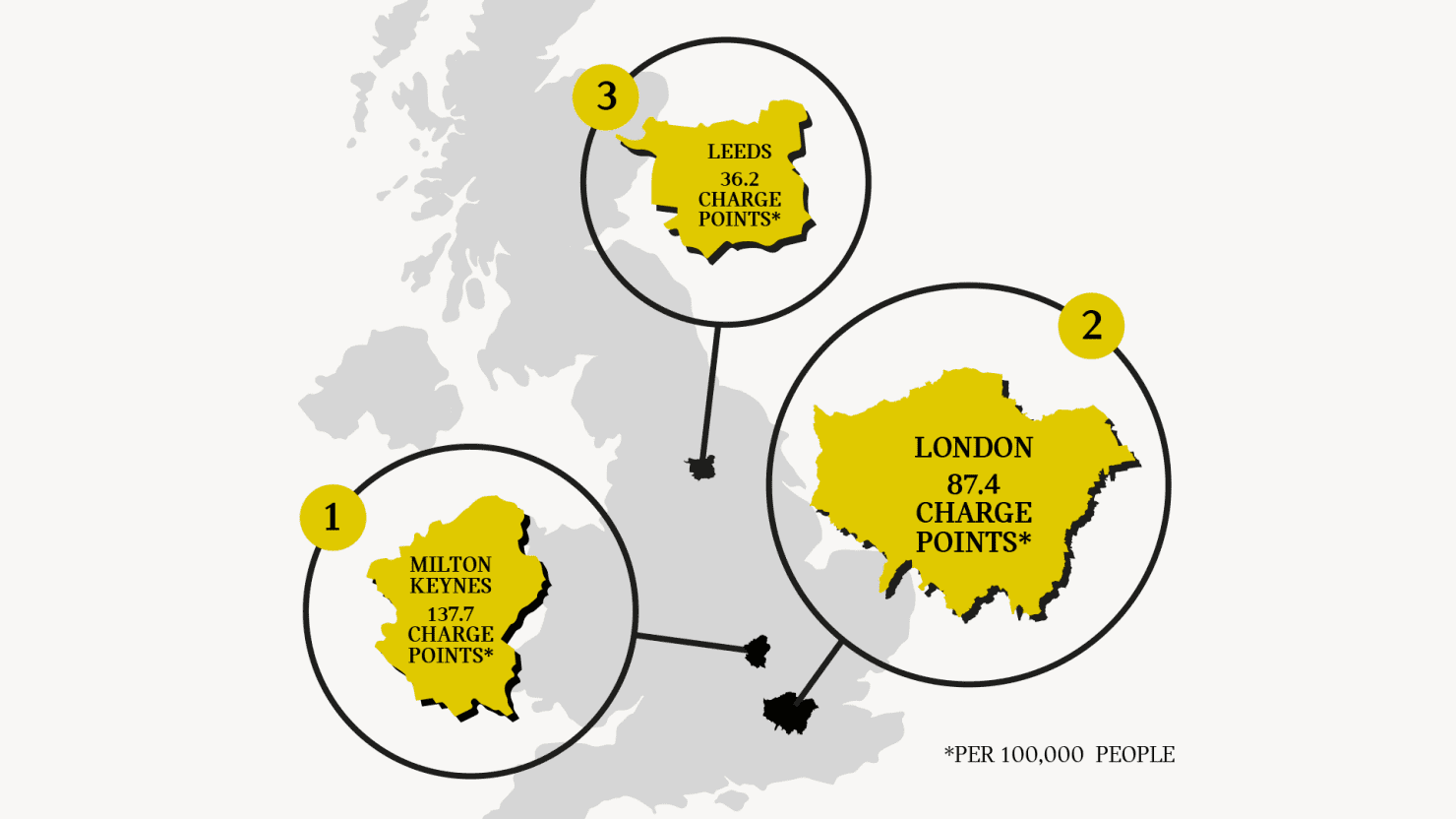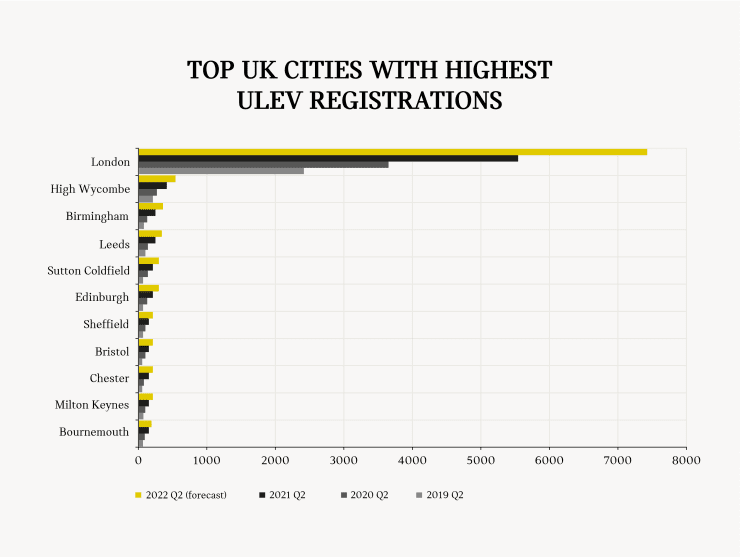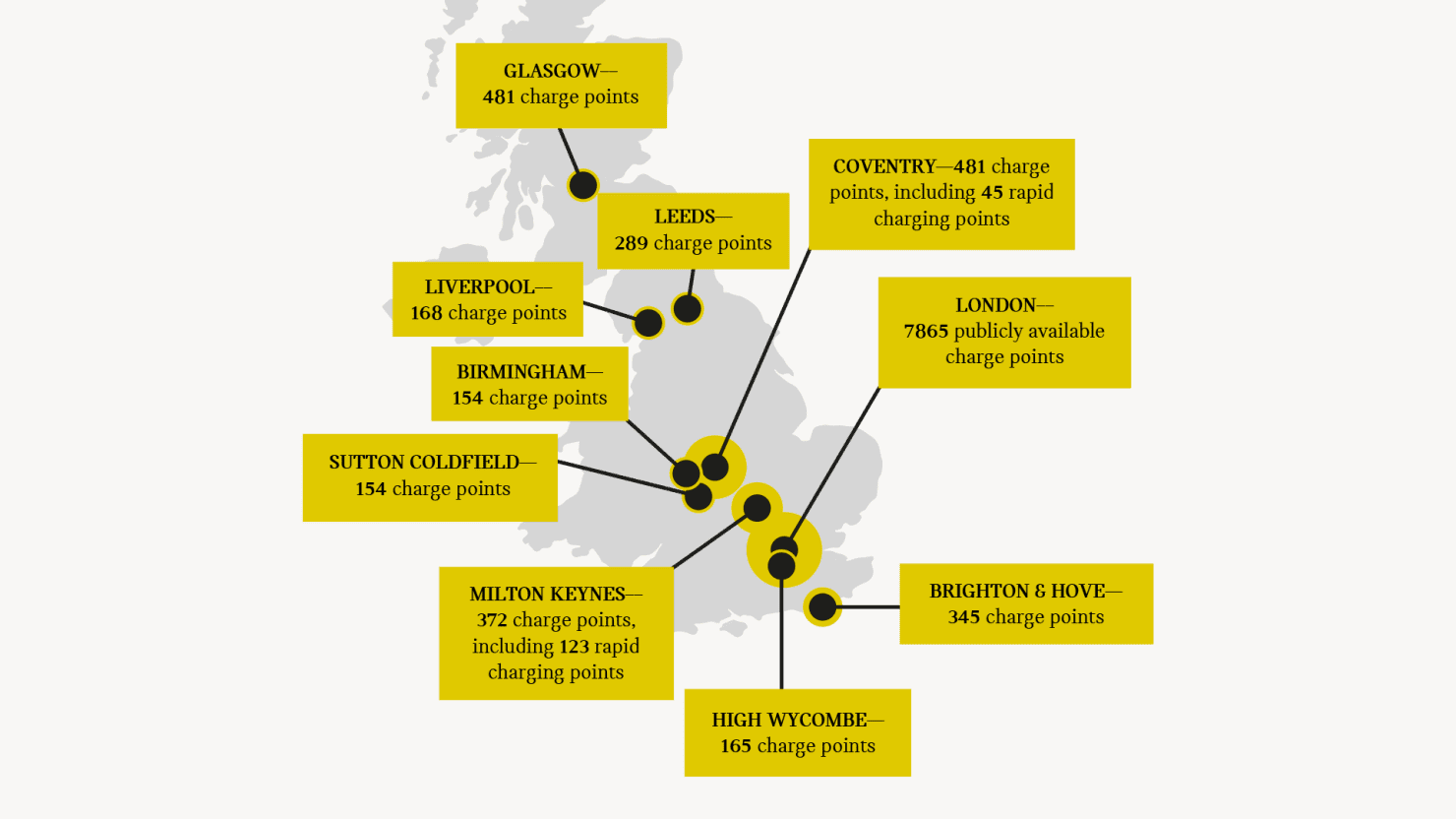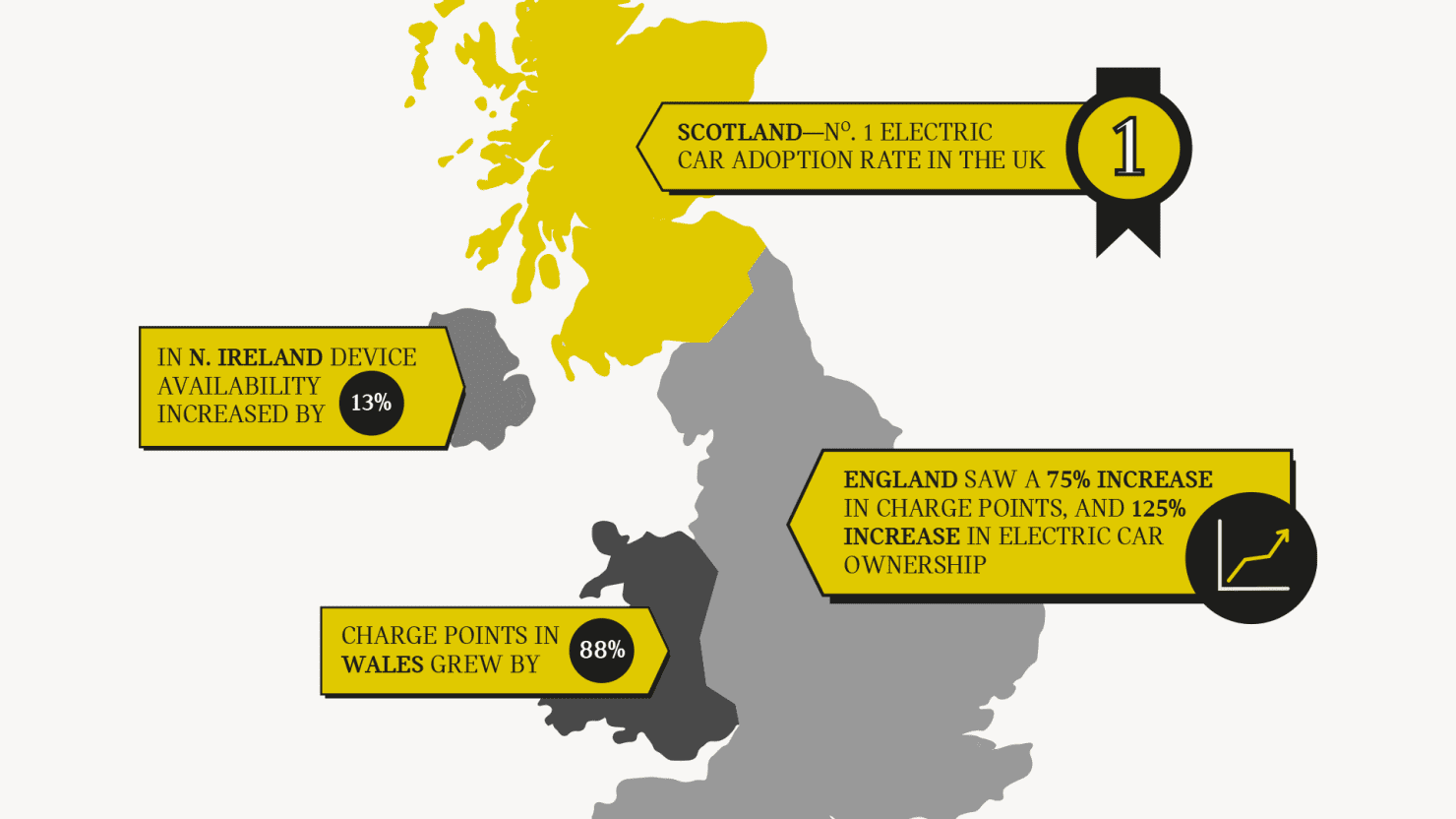In a wide-ranging analysis of electric vehicle (EV) charging data from the United Kingdom, iconic British marque Mini has highlighted the increasing demand for both EVs and charge points across the UK. But the two don’t always match.
Mini’s recent Electric Progress Report 2022 reveals that UK EV charging infrastructure has grown from 15,116 charging stations in October 2019 to 25,927 in October 2021 – a 72% increase. But the growth still trails the increase in EVs on UK roads, which has grown 126%, from 109,443 to 246,901 in that time.
The report – which combined Battery Electric Vehicles (BEVs), Plug-in Hybrid Electric Vehicles (PHEVs), and Ultra Low Emission Vehicles (ULEVs) under the heading ‘electric cars’ – shows that cities were better placed to match a large number of electric cars with charging points, but not all succeeded.
The report analysed 120 towns and cities across the UK and ranked for metrics including the number of charging points and rapid charging points – including the number of each per capita and square mile – as well as the number of registered BEVs and PHEVs. These rankings were then collated to reach a final index score.
Leading the way was the city of Milton Keynes which ranked top with an index score of 103.3, representing a total of 372 charging points – including 123 rapid charge points – and 21.1 charge points per square mile.

Not far behind was London with an index score of 100.3. Given its size and the political landscape, the number of electric vehicles and charge points far exceeds other cities, with over 7,800 charge points including around 700 rapid charge points, leading to 87.4 charge points per 100,000 people.
London has also maintained a much higher percentage of EVs than other UK cities, registering 617 per 100,000 people.

The number of charge points around the UK are steadily growing, as seen in the map below, but the number of charge points do not always correlate with the number of people actually driving electric cars.

For example, Coventry and Brighton & Hove have a charge device for every two or three electric cars respectively, while other cities have far fewer charge points, such as Leeds, which has 70 electric cars per charge point, and Milton Keynes with 58 per charge point.
It should be no surprise that EV adoption is largely being driven by highly populated cities such as London (+80% charge points and +128% electric cars), Leeds (+105% charge points and +133% electric cars) and Birmingham (+71% charge points and +155% electric cars).
However, the correlation between large cities, charge point deployment, and EV adoption is not always there, such as in Manchester, which had 6% fewer charge points despite a 152% increase in electric car ownership.

Similarly, in Scotland, which is the UK’s leader for electric car adoption, charge point availability rose by only 54% while EV adoption increased by 132%.
Joshua S. Hill is a Melbourne-based journalist who has been writing about climate change, clean technology, and electric vehicles for over 15 years. He has been reporting on electric vehicles and clean technologies for Renew Economy and The Driven since 2012. His preferred mode of transport is his feet.


